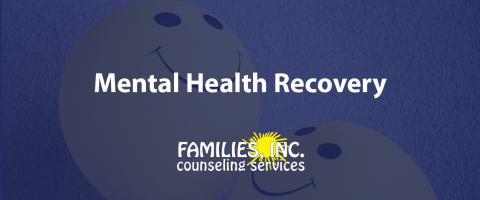
Recovery in the context of mental health can mean a lot of different things to different people. Depending on who you are and what goals you wish to achieve, recovery may simply mean having a good week. You don’t have to be the happiest, most successful and settled person to recognize and celebrate your progress.
It’s important to note that recovering from a mental illness does not necessarily mean being free of all symptoms, but can be reaching a place where your condition is manageable. For most, it’s an ongoing effort and not always smooth sailing.
Both positive steps forward and negative setbacks are inevitable stops along the journey to a fulfilling life. Incremental improvements are the name of the game, and so is paying attention to the things that affect our wellbeing.
What Are Some Common Factors That Influence Mental Health?
- Work – work/life balance, quality of working conditions, amount of fulfillment from job
- Finances – paying bills, stability of housing, debt
- Social Isolation – feelings of loneliness, inability to connect with others
- Stress – chronic stress, concentrated periods of high stress without relief
- Loss of a loved one – losing a loved one, friend or important person
- Physical Health – amount of exercise, issues with bodyweight, low energy
- Trauma – neglected childhood trauma, recent traumatic experiences
- Discrimination – based on race, gender, sexual orientation or otherwise
- Alcohol/Drug Use – misuse, addiction
Deciding That You Want to Recover
When it comes down to it, the most vital step of recovery is deciding that you want to get better. Change isn’t easy, but being honest with oneself about the need to make life improvements is the first check on the list.
Disruptions to the way of life you’ve become accustomed to are inevitable – relationships may change, you may reassess your career or the way you spend your free time. This is okay and often necessary for your progress.
How to Recover
- Set Achievable Goals – start slow and build up to bigger goals as you feel comfortable
- Strive for a Healthy Lifestyle – dedication to a healthy, balanced way of living (regular exercise and diet) helps to improve mental wellbeing
- Talk to Friends and Family – discussing your troubles and goals with those close to you is invaluable and strengthens a sense of belonging
- Seek Professional Help – working with a mental health professional provides guidance and support to help develop skills and strategies for improving mental health
- Embrace Community – Try joining a new club, support group, or speaking with your community of faith. You may be surprised by how understanding and supportive they can be
- Celebrate the Little Things – don’t forget to celebrate and reward yourself when you stick with a goal and achieve it - no matter how large or small
You’re Not Alone
If you are suffering from depression, anxiety or any other ailment that affects your mental health, you’re not alone. According to NAMI (National Alliance on Mental Illness), 1 in 5 Americans experience mental illness.
Building resilience and making incremental progress will help put you on course toward a fulfilling and meaningful life.
Don’t forget that it’s okay to ask for help. If you or a loved one are experiencing symptoms of anxiety, depression or any other mental health disorders, consider speaking to a therapist or related professional.
Our friendly and compassionate mental health experts at Families, Inc are here to help. Give us a call or visit us at one of our 11 local clinics in Arkansas. Together, we can help you enjoy a healthier, happier life.


